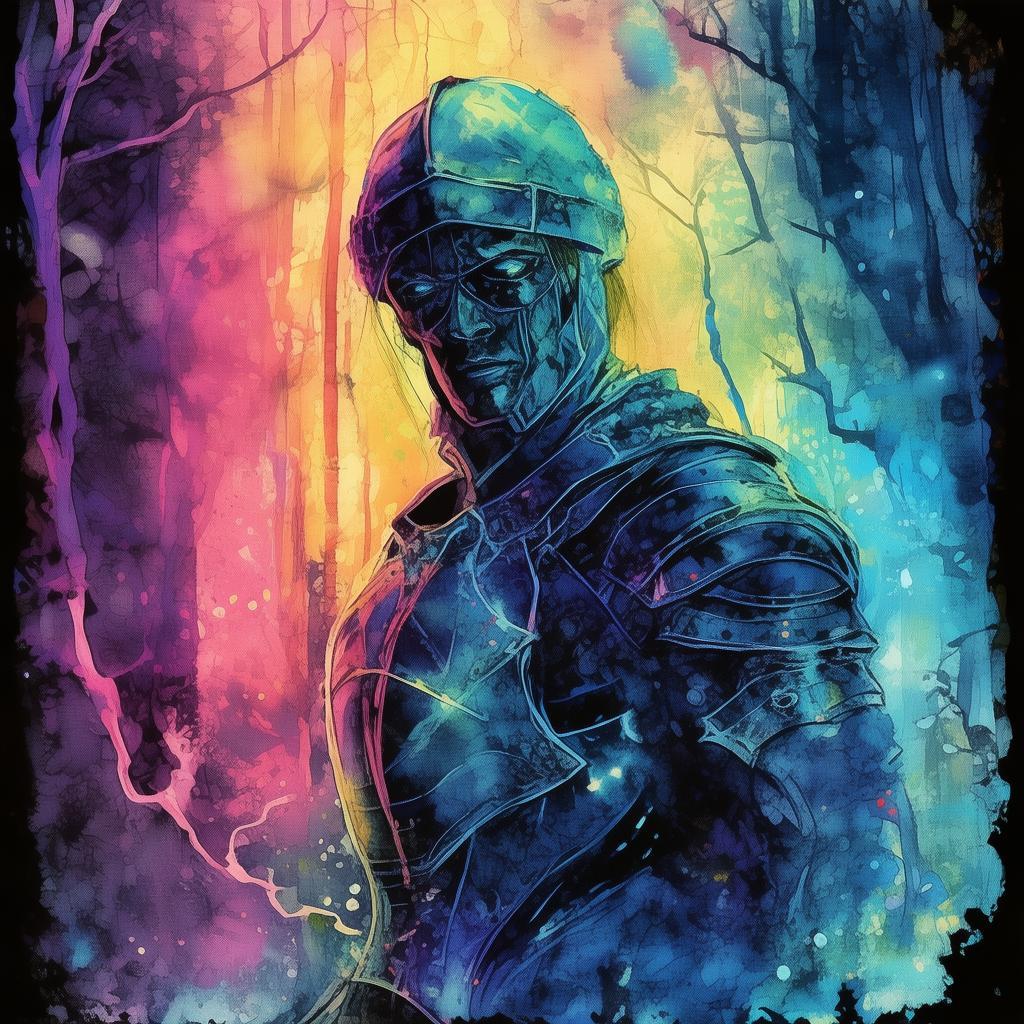The Whispering Throne
In the heart of the grand and opulent court of the Conspirators, there stood a throne, not of gold or precious stones, but of whispers and secrets. This was the Whispering Throne, a relic of ancient times, said to be imbued with the power to reveal the deepest, darkest secrets of those who dared to sit upon it. The throne was the centerpiece of the Great Hall, a place where the king and his closest advisors gathered to plot the fate of the kingdom.
Among the courtiers, there was a commoner named Elara, a woman of humble birth but of great intellect and a spirit that defied her station. She was known for her sharp wit and her ability to decipher the most complex of riddles. Elara had always been fascinated by the Whispering Throne, and she often found herself drawn to it, imagining the secrets it might hold.
One fateful evening, as the court was abuzz with the preparations for the annual festival, Elara found herself alone in the Great Hall. The king, feeling the weight of his many responsibilities, had retreated to his private quarters, leaving the courtiers to their own devices. It was then that Elara, with a mixture of curiosity and trepidation, approached the Whispering Throne.
As she sat upon it, the throne began to hum softly, and Elara felt a strange warmth envelop her. She closed her eyes, willing the throne to reveal its secrets. Suddenly, she saw visions, vivid and clear, of a conspiracy that stretched from the highest echelons of the court to the very throne itself. The king, she realized, was not who he appeared to be. He was a pawn in a much larger game, a game that could bring down the entire kingdom.
Elara knew that she had to act, but she was alone and without allies. She turned to the courtiers, hoping to find someone who would believe her and help her expose the truth. But the court was a place of intrigue and betrayal, and no one was to be trusted. One by one, she approached her fellow courtiers, only to be met with skepticism and, in some cases, outright hostility.
Despite the odds, Elara pressed on. She used her wit and intellect to outmaneuver her enemies, and she began to gather evidence of the conspiracy. She discovered that the throne was not just a vessel for secrets, but a symbol of power and control. The whispers it produced were not just the thoughts of the courtiers, but the very essence of their desires and fears.
As the festival approached, the court was abuzz with excitement. Elara, however, was consumed by a growing sense of dread. She knew that the king would soon sit upon the throne, and that he would be vulnerable to the whispers it produced. If he were to hear the truth, the kingdom would be torn apart.
In a desperate bid to prevent disaster, Elara devised a plan. She would sit upon the throne first, and she would use her own mind to counteract the whispers of the throne. She would speak the truth, loud and clear, and she would force the king to see the conspiracy for what it was.

The night of the festival arrived, and Elara stood before the throne, her heart pounding in her chest. She closed her eyes and began to speak, her voice echoing through the Great Hall. "Your majesty, I come before you with a truth that will shake the very foundations of this kingdom. The whispers you hear are not the thoughts of your courtiers, but the voice of betrayal. The throne you sit upon is a tool of control, and the power it holds is in the hands of those who seek to undermine you."
The courtiers gasped, and the king, his face pale, rose from his seat. He turned to Elara, his eyes filled with a mix of fear and curiosity. "Who are you to speak such words?" he demanded.
"I am Elara," she replied, her voice steady. "And I am the voice of truth."
As the king listened to Elara's words, the whispers of the throne grew fainter, and the truth began to seep into the courtiers' minds. The conspiracy was real, and the throne was at the center of it. The king, realizing the danger he had been in, ordered an investigation into the matter.
The investigation revealed that the throne had been used by a group of courtiers to manipulate the king and consolidate their power. Elara was hailed as a hero, and the kingdom was saved from the brink of disaster. The Whispering Throne, once a symbol of power, became a symbol of truth and justice.
Elara, however, did not seek glory. She knew that the whispers of the throne could still be used for evil, and she vowed to protect the kingdom from such dangers. She became the king's most trusted advisor, and her wisdom and courage were the foundation upon which the kingdom was built.
The Whispering Throne remained in the Great Hall, a silent witness to the events that had unfolded. And Elara, the commoner who had once dared to sit upon it, became a legend, a symbol of the power of truth and the courage to stand up against the forces of darkness.
✨ Original Statement ✨
All articles published on this website (including but not limited to text, images, videos, and other content) are original or authorized for reposting and are protected by relevant laws. Without the explicit written permission of this website, no individual or organization may copy, modify, repost, or use the content for commercial purposes.
If you need to quote or cooperate, please contact this site for authorization. We reserve the right to pursue legal responsibility for any unauthorized use.
Hereby declared.









